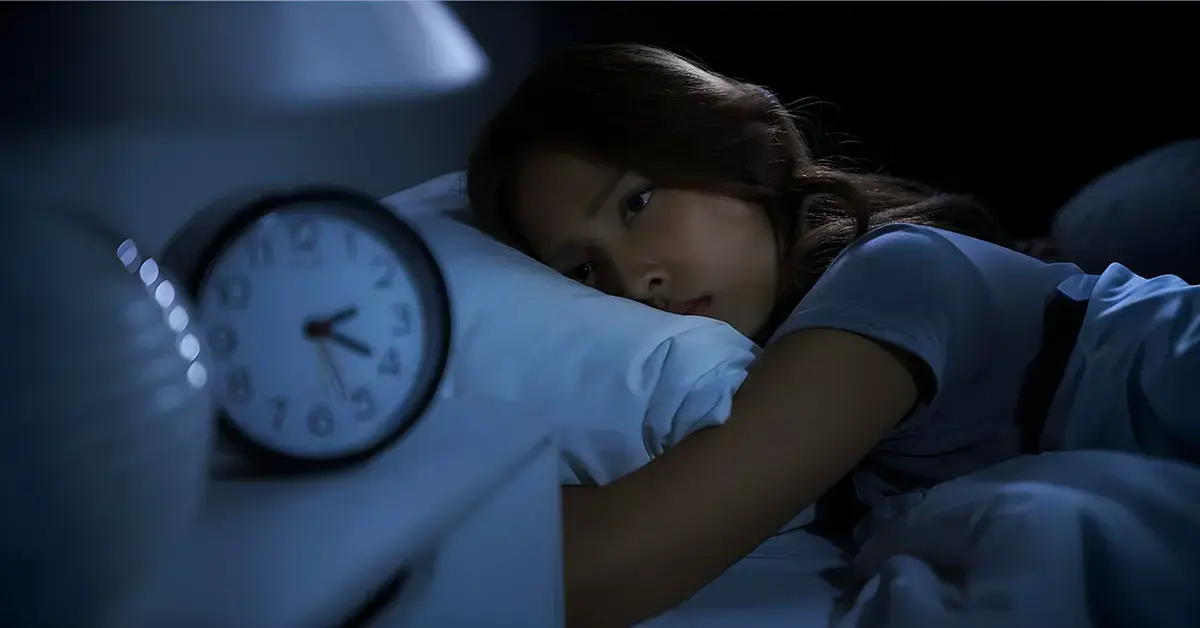The quality of our sleep significantly impacts our overall health. It helps our body to rest,
recover, and get ready for the next day. However, not everyone gets the good night’s sleep they
need. Some people suffer from sleep disorders, which can make it difficult to fall asleep, stay
asleep, or feel rested after sleep. In this article, we’ll explain what sleep disorders are, their
common types, causes, symptoms, and how they can be treated.
What Are Sleep Disorders?
Sleep disorders are problems that affect one’s ability to sleep properly on a regular basis. They
can cause you to have trouble falling asleep, staying asleep, or waking up too early. Some sleep
disorders can also make you feel extremely tired during the day, even if you think you’ve slept
enough.
Common Types of Sleep Disorders
There are several types of sleep disorders, but here are a few of the most common ones:
● Insomnia: This is the most well-known sleep disorder. Sleeping and remaining asleep
are difficult when one has insomnia. They may wake up too early and not be able to go
back to sleep. Insomnia can be short-term (lasting a few days or weeks) or chronic
(lasting for months or years).
● Sleep Apnea: Sleep apnea occurs when a person’s breathing is interrupted during
sleep. This can happen many times during the night, leading to poor sleep quality.
● Restless Legs Syndrome (RLS): RLS is a condition that causes an uncomfortable
feeling in the legs and an urge to move them, especially when trying to sleep. It might be
difficult to sleep or stay asleep as a result.
● Narcolepsy: Narcolepsy leads to feeling super sleepy during the day and falling asleep
at odd times. People with narcolepsy may suddenly fall asleep during the day, even
while doing activities like working or driving.
● Parasomnias: These are unusual behaviors that happen during sleep, such as
sleepwalking, talking during sleep, or having nightmares. These behaviors can disturb
the person’s sleep or the sleep of others.
Causes of Sleep Disorders
There can be many reasons why someone develops a sleep disorder. Here are some common
causes:
● Stress and Anxiety: Worrying about work, school, or personal issues can make it hard
to relax and fall asleep. Stressful events like a job loss or the death of a loved one can
also trigger sleep problems.
● Poor Sleep Habits: Going to bed at different times every night, using electronic devices
before bed, or having too much caffeine can all interfere with sleep.
● Medical Conditions: Certain medical problems, such as asthma, arthritis, or
depression, can make it difficult to sleep well.
● Medications: Some medicines can affect sleep as a side effect. If you experience
difficulty falling asleep while taking medication, it is recommended that you consult with
your doctor.
● Lifestyle Factors: Smoking, drinking alcohol, and not getting enough exercise can all
contribute to sleep disorders.
Symptoms of Sleep Disorders
The symptoms of sleep disorders can vary depending on the type of disorder, but here are
some common signs to look out for:
● Difficulty falling asleep or staying asleep
● Waking up frequently during the night
● Feeling drained during the day, even after a good night’s sleep.
● Falling asleep at inappropriate times, such as when driving or attending meetings.
● Snoring loudly or making gasping or choking sounds during sleep
● Feeling restless or having an urge to move your legs at night
Treatment for Sleep Disorders
The good news is that there are ways to treat or manage sleep disorders. Here are some
common approaches:
● Improving Sleep Habits: Making changes to your bedtime routine can help improve
sleep. This includes going to bed and waking up at the same time every day, creating a
relaxing bedtime routine, and avoiding screens before bed.
● Medications: For some sleep disorders, doctors may prescribe medication to help. For
example, sleeping pills can help with insomnia and certain medicines can be used to
treat restless legs syndrome or narcolepsy.
● Therapy: Cognitive-behavioral therapy (CBT) can be effective for treating insomnia. This
type of therapy helps people change the thoughts and behaviors that are keeping them
from sleeping well.
● Medical Devices: For sleep apnea, a CPAP (Continuous Positive Airway Pressure)
machine can be used to keep the airway open during sleep, preventing interruptions in
breathing.
● Lifestyle Changes: Quitting smoking, reducing alcohol intake, and getting regular
exercise can all help improve sleep.
When to see a Doctor?
If you are having ongoing sleep issues, you should consult a doctor. They can help determine
the cause of your sleep issues and recommend appropriate treatment. Good sleep is crucial for
your overall health, so don’t hesitate to seek help if you’re struggling to get the rest you need.
Sleep disorders are common, but they don’t have to be a permanent part of your life. By
understanding the types of sleep disorders, their causes, symptoms, and treatments, you can
take steps toward better sleep and better health. Remember, if you’re having trouble with sleep,
there’s no shame in reaching out for help—your well-being depends on it.
